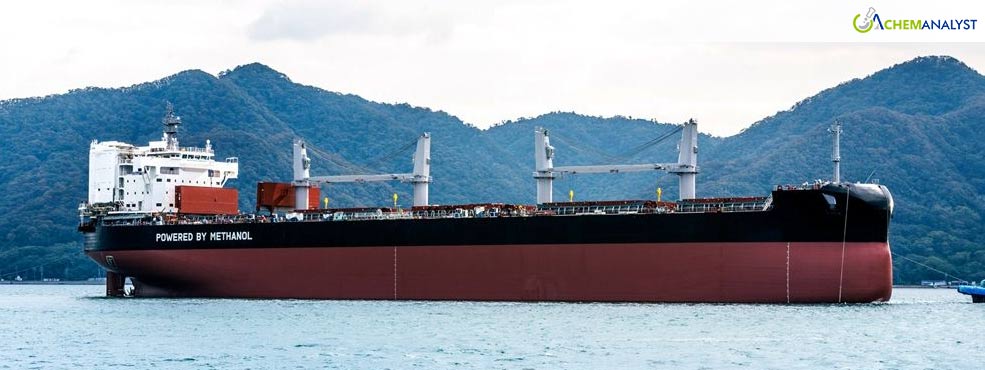Welcome To ChemAnalyst

Tsuneishi Revolutionizes Maritime Sustainability with World's First Methanol Dual-Fuel Bulk Carrier: A Technological Leap Towards Carbon-Neutral Shipping
In a groundbreaking advancement that promises to reshape global maritime transportation, Tsuneishi has unveiled the TESS66, the world's inaugural methanol dual-fuel bulk carrier, marking a pivotal moment in the shipping industry's sustainable technology evolution. Scheduled for delivery in spring 2025, this innovative vessel represents a comprehensive technological solution addressing the critical environmental challenges facing maritime transportation.
Technological Innovation and Environmental Performance
The TESS66 stands as a testament to advanced engineering, delivering unprecedented environmental benefits through its revolutionary methanol dual-fuel propulsion system. The vessel's remarkable emission reduction capabilities demonstrate a holistic approach to sustainable maritime operations:
Emission Reduction Metrics:
- Nitrogen Oxide (NOx) Emissions: 80% reduction
- Sulfur Oxide (SOx) Emissions: 99% reduction
- Carbon Dioxide (CO2) Emissions: 10% reduction
Vessel Specifications:
- Cargo Capacity: 81,500 cubic meters
- Deadweight: 65,700 metric tons
- Propulsion Technology: Methanol dual-fuel system
- Specialized Design: AEROLINE technology for wind resistance optimization
Strategic Environmental Positioning
Tsuneishi's breakthrough extends beyond technological innovation, representing a strategic response to increasingly stringent global maritime environmental regulations. The TESS66 provides a pragmatic pathway for shipping companies to simultaneously achieve operational efficiency and environmental responsibility.
Green Methanol: A Catalyst for Transformation
The vessel's compatibility with green methanol represents a critical advancement in sustainable fuel technologies. By enabling carbon-neutral operational capabilities, Tsuneishi is effectively creating a blueprint for future maritime decarbonization strategies.
Key Advantages of Green Methanol:
- Renewable and low-carbon fuel alternative
- Reduced environmental impact
- Compatibility with existing maritime infrastructure
- Potential for widespread industry adoption
Technological Development Roadmap
The TESS66 emerges from Tsuneishi's comprehensive technology development strategy, reflecting a long-term commitment to sustainable maritime solutions. This innovation demonstrates the company's proactive approach to addressing climate change challenges within the shipping sector.
Industry Implications and Future Outlook
Tsuneishi's methanol dual-fuel bulk carrier signals a potential paradigm shift in maritime engineering. By demonstrating the technical feasibility of low-carbon shipping technologies, the TESS66 could accelerate industry-wide transitions towards more sustainable operational models.
Potential Industry Transformations:
- Reduced environmental footprint
- Enhanced regulatory compliance
- Improved technological standards
- Economic incentives for green shipping technologies
Global Context and Significance
As international maritime regulations become increasingly stringent, the TESS66 positions Tsuneishi at the forefront of sustainable shipping solutions. The vessel represents more than a technological achievement—it embodies a comprehensive approach to reimagining maritime transportation in an era of critical environmental challenges.
Conclusion: A Navigational Breakthrough
Tsuneishi's TESS66 transcends traditional maritime engineering boundaries, offering a compelling vision of environmentally responsible shipping. By integrating advanced technological capabilities with a profound commitment to sustainability, the company has created a landmark vessel that could fundamentally reshape global maritime transportation strategies.
This innovative bulk carrier serves as a powerful demonstration of how technological innovation can address critical environmental challenges, providing a beacon of hope for a more sustainable maritime future.
We use cookies to deliver the best possible experience on our website. To learn more, visit our Privacy Policy. By continuing to use this site or by closing this box, you consent to our use of cookies. More info.
